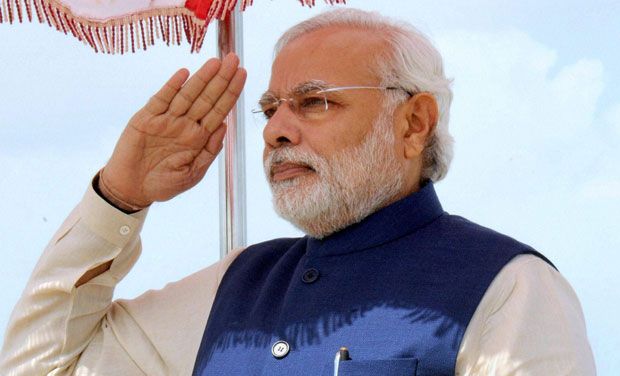
New Delhi: The man who promised “acchche din aane wale hain” intends to administer a “bitter pill” to bring back the good old days. In 30 days the Modi government has its shares of ups and downs. If it scored on the international stage, the domestic front continues to limp.
But its just the beginning and as Modi said – “I am well aware that my steps may dent the immense love that the country has given to me. But when my countrymen would realize that these steps would result in getting the financial health back, then I will regain that love”.
Prime Minister, Narendra Modi took the world stage by storm when he invited the SAARC leaders at his glittering swearing in ceremony. Mr Modi, who is working to revive the failing economy is also rapidly shaping up a foreign policy.
In 30 days, one can get a fair view of Mr Modi’s diplomatic moves with his focus on a distinct “Look East” policy. At this juncture, Japan and China has emerged as Mr Modi’s main target regions to take forward his “Look East” accent. Terrorist strikes at Indian Consulate at Herat and Pakistan Airport have failed to derail the initiatives launched by both Mr Modi and his Pakistan counterpart, Nawaz Sharif. Mr Modi’s visit to Bhutan opened the doors for both the countries to review the bilateral relations and regional and international developments of mutual interest. With regard to Sri Lanka, it was clear that the Prime Minister was in no mood to succumb to Tamil Nadu pressure. Rather it seems that he intends to adopt a more strategic and nationalist approach. US, which has once rejected his visa, is keenly awaiting the arrival Mr Modi.
The Modi influence, however, was glaring in the change in government’s work culture. It was virtually a rude awakening for the babus, who are now expected to clock in around 9.30 am in the morning. The Prime Minister’s formation of union council of ministers was a signal against dynasty politics. This was extended and no minister is allowed to appoint any of his relatives in his personal staff. Neither has Mr Modi allowed the bureaucrats working in the UPA regime to be adopted by his council of ministers. Ministerial groups have been abolished to fast track decisions. A direct line of communication between the PM and top bureaucrats has been established.
Mr Modi who prefers to speak through social media is setting a record of sorts. A report from Geneva states: “In the Twitterverse ruled by President Barack Obama, India’s new
Prime Minister Narendra Modi may soon overtake the White House on Twitter.”
Yet controversies have dogged Mr Modi in last 30 days. The first spark was lighted by the minister of state for PMO Jitendra Singh, when he said that the process to repeal Article 370 had begun. Then came one the most embarrassing moment for the government when the HRD minister, Ms Smriti Irani was caught in a controversy over her educational qualifications and discrepancies in the information provided by her in two election affidavits. The move to impose Hindi also did not go down well for the government.
Controversies erupted when government targeted the NGOs, particularly the Greenpeace over foreign funding. Right now Delhi university is embroiled in the FYUP row.
Eyebrows were raised as the government hurriedly pushed through an ordinance to change the Telecom Regulatory Authority of India (Trai) Act and enable former Trai chairman Nripendra Misra’s appointment as principal secretary to the Prime Minister. The government’s move to keep the Planning Commission in a limbo was also being questioned by the Opposition and a section of bureaucrats. On the eve of completion of 30 days, the train accidents yet again raised questions about faulty railways signals.
In the past 30 days, Mr Modi has made his presence felt at the global stage but in the domestic front, the electorates who voted him to power following the jingle of “Achche din aane wale hain” is getting the taste of his tough measures. Rail fares have gone through a steep hike and there could be more such steps. On the other hand inflation continues unabated.
Yet in the 30 days, government has made its intention clear. It has announced steps to contain food inflation. The government is clearly on the move to face challenges of a weak monsoon, inflation and Iraq crisis. Industry is upbeat with Mr Modi’s move to reduce red tapism. In all – high hopes and apprehensions mark last 30 days of Modi government.


